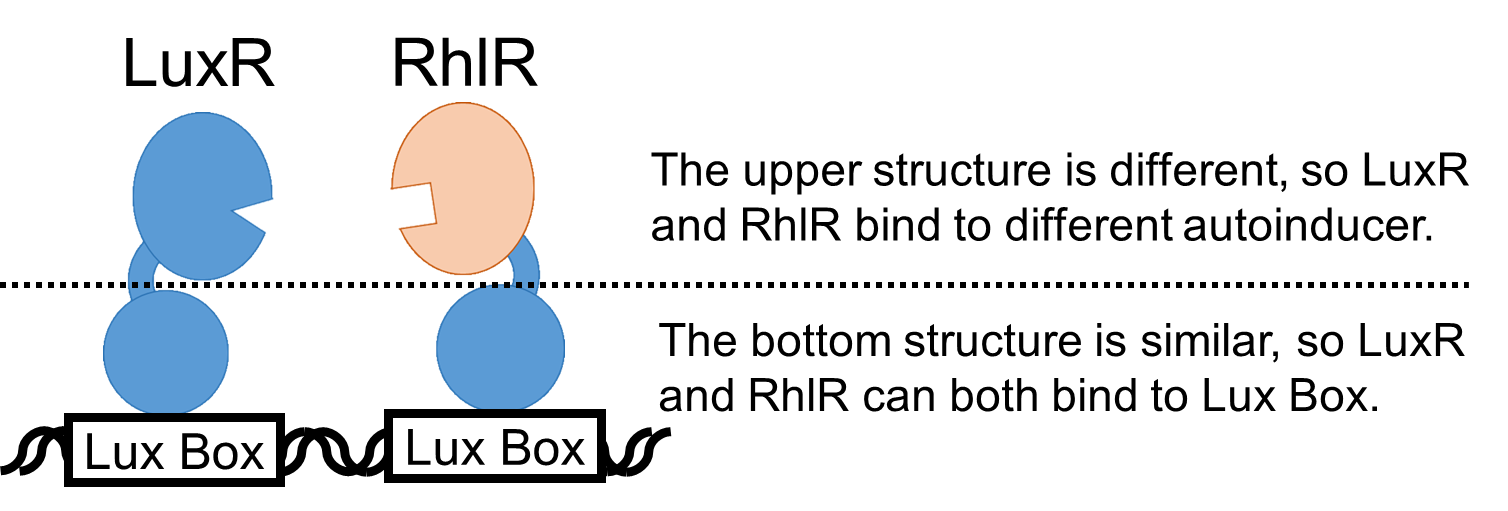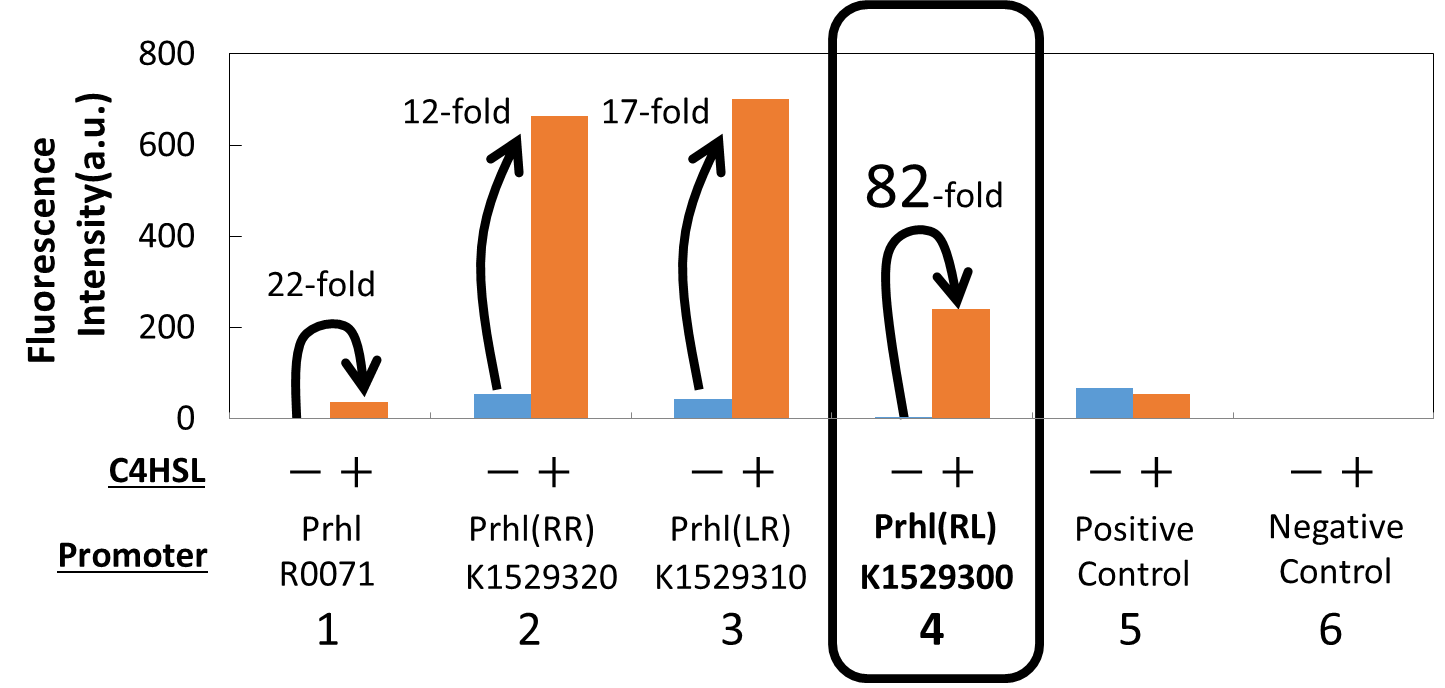Difference between revisions of "Part:BBa K1529310"
| Line 2: | Line 2: | ||
<partinfo>BBa_K1529310 short</partinfo> | <partinfo>BBa_K1529310 short</partinfo> | ||
| − | We newly developed the | + | We newly developed the Prhl(LR) promoter (<partinfo>BBa_K1529310</partinfo>) by improving Prhl promoter (<partinfo>BBa_R0071</partinfo>) which is activated by C4HSL-RHLR complex (Fig. 1). <br> |
| − | To characterize the function of this | + | To characterize the function of this Prhl(LR) promoter, we constructed a part, Prhl(LR)-GFP (<partinfo>BBa_K1529311</partinfo>), by inserting the Prhl(LR) promoter, upstream of a GFP coding sequence. |
[[Image:titech2014_parts_rhl_promoter_main_Fig1.png|thumb|center|550px|<b>Fig. 1.</b> Our newly designed promoter]] | [[Image:titech2014_parts_rhl_promoter_main_Fig1.png|thumb|center|550px|<b>Fig. 1.</b> Our newly designed promoter]] | ||
[[Image:titech2014_parts_luxR_and_rhlR_difference_main_Fig2.png|thumb|center|550px|<b>Fig. 2.</b> Difference between LuxR and RhlR]] | [[Image:titech2014_parts_luxR_and_rhlR_difference_main_Fig2.png|thumb|center|550px|<b>Fig. 2.</b> Difference between LuxR and RhlR]] | ||
| − | By using the reporter cells that contain Prhl(LR) | + | By using the reporter cells that contain Prhl(LR)-GFP, we measured the fluorescence intensity of the cells induced by C4HSL. (Fig. 3.) <br> |
| − | We saw that our new | + | We saw that our new Prhl(LR) promoter was actually activated by C4HSL through an induction assay |
| − | + | ||
| − | + | ||
| − | + | ||
| + | [[Image:Improved_Prhl(RL)_Promoter_Assay_Result.png|thumb|center|600px|<b>Fig. 3.</b> Fluorescence intensity detected by flow cytometer]] | ||
<br> | <br> | ||
| Line 24: | Line 22: | ||
<!-- --> | <!-- --> | ||
<span class='h3bb'>Sequence and Features</span> | <span class='h3bb'>Sequence and Features</span> | ||
| − | <partinfo> | + | <partinfo>BBa_K1529300 SequenceAndFeatures</partinfo> |
<!-- Uncomment this to enable Functional Parameter display | <!-- Uncomment this to enable Functional Parameter display | ||
===Functional Parameters=== | ===Functional Parameters=== | ||
| − | <partinfo> | + | <partinfo>BBa_K1529300 parameters</partinfo> |
<!-- --> | <!-- --> | ||
Revision as of 11:44, 19 October 2014
Prhl(LR)
We newly developed the Prhl(LR) promoter (BBa_K1529310) by improving Prhl promoter (BBa_R0071) which is activated by C4HSL-RHLR complex (Fig. 1).
To characterize the function of this Prhl(LR) promoter, we constructed a part, Prhl(LR)-GFP (BBa_K1529311), by inserting the Prhl(LR) promoter, upstream of a GFP coding sequence.
By using the reporter cells that contain Prhl(LR)-GFP, we measured the fluorescence intensity of the cells induced by C4HSL. (Fig. 3.)
We saw that our new Prhl(LR) promoter was actually activated by C4HSL through an induction assay
For more information, see [http://2014.igem.org/Team:Tokyo_Tech/Experiment/Prhl_reporter_assay our work in Tokyo_Tech 2014 wiki].
Sequence and Features
Assembly Compatibility:
- 10COMPATIBLE WITH RFC[10]
- 12COMPATIBLE WITH RFC[12]
- 21COMPATIBLE WITH RFC[21]
- 23COMPATIBLE WITH RFC[23]
- 25COMPATIBLE WITH RFC[25]
- 1000COMPATIBLE WITH RFC[1000]



